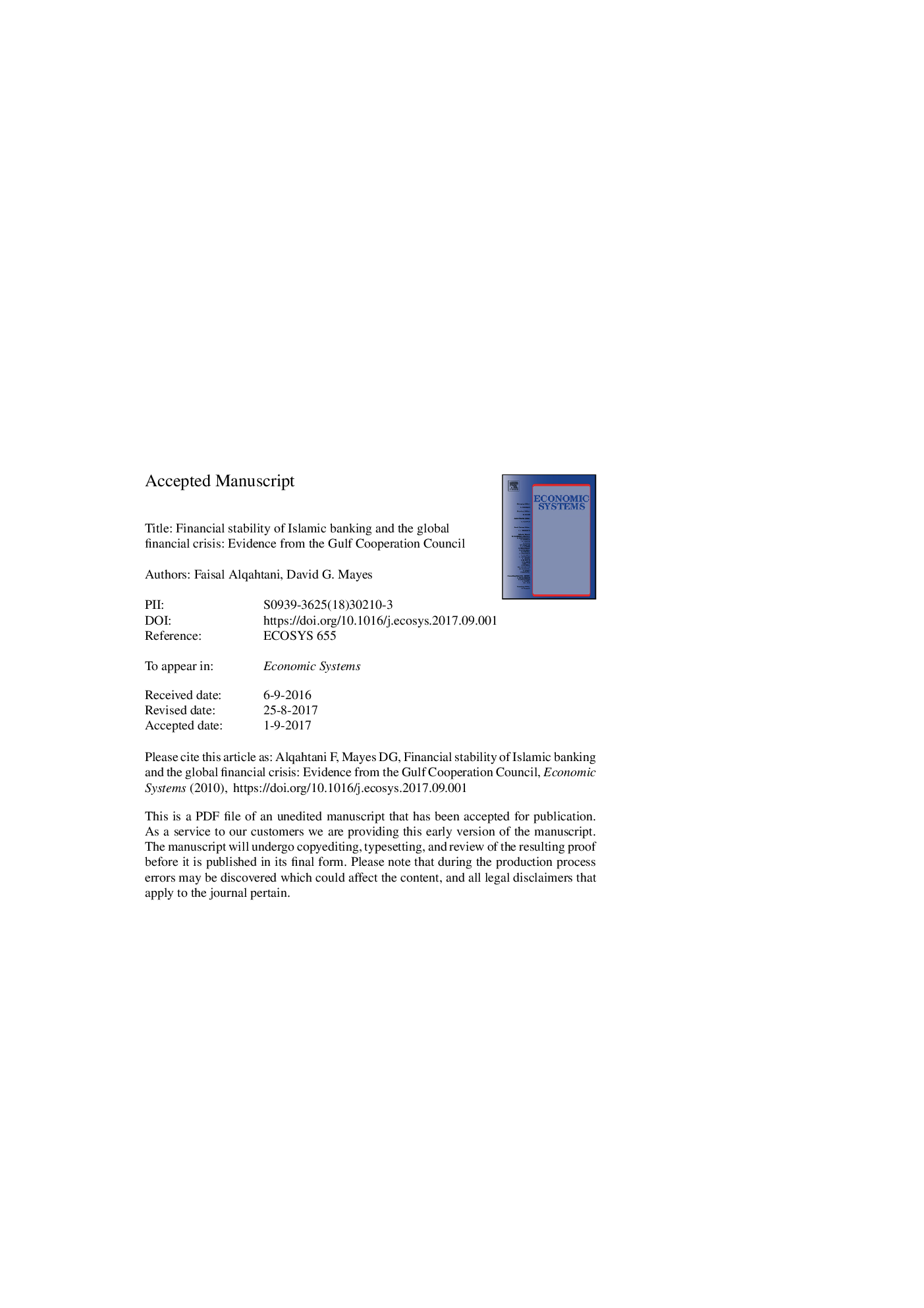| Article ID | Journal | Published Year | Pages | File Type |
|---|---|---|---|---|
| 7347932 | Economic Systems | 2018 | 40 Pages |
Abstract
Using a sample of 76 banks from the Gulf Cooperation Council region, we use accounting- as well as market-based measures of financial stability to examine whether Islamic banks outperformed conventional banks in the time of financial shocks during the period 2000-2013. We find that the difference between the two banking types was initially not significant during the GFC. However, when the financial shock spread to the real economy during the later phases of the crisis, Islamic banks suffered a significantly higher level of financial instability than conventional banks. This result holds true for large banks but not for small Islamic banks. Small Islamic banks demonstrated a relatively better handling of the economic downturn than large Islamic banks, supporting the argument that Islamic banks are more stable when they operate at a small scale but lose this stability when they increase their scale of operations. Hence, while Islamic banks may have escaped the consequences of highly volatile financial instruments, they were not spared from a major shock in the real economic sectors.
Keywords
Related Topics
Social Sciences and Humanities
Economics, Econometrics and Finance
Economics and Econometrics
Authors
Faisal Alqahtani, David G. Mayes,
